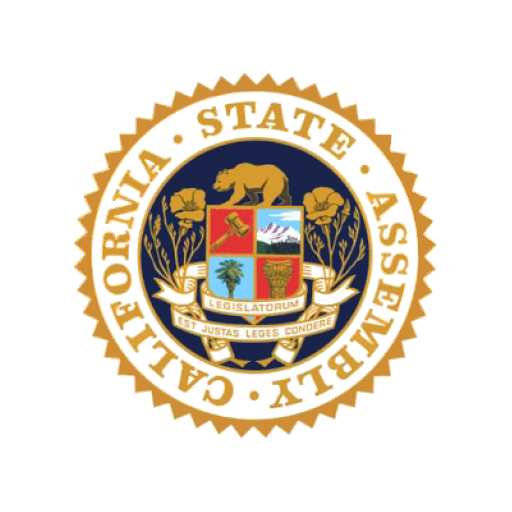AB 711 Update

WARNING FOR CALIFORNIA UPLAND BIRD HUNTERS:
LEAD AMMUNITION RESTRICTIONS IN EFFECT FOR DOVE OPENER & BEYOND
Last year, the NRA/CRPA alerted California hunters that the first phase of AB 711 would take effect on July 1, 2015, drastically expanding California’s restrictions on hunters using lead ammunition. Prior to AB 711, it was already required to use ammunition that has been certified as non-lead by the California Department of Fish & Wildlife when taking certain animals within the “California condor zone.” That restriction will now apply when taking any wildlife throughout the entire state.
Given the drastic change, AB 711’s provisions were decided to be phased in over time, up until July 1, 2019, when it will take full effect. The first phase, which has been in effect since July 1, 2015, requires all California hunters to use certified “non-lead ammunition” when taking: (1) Nelson bighorn sheep anywhere within the state; and (2) all wildlife within a Wildlife Area or an Ecological Reserve.
California dove hunters should be aware of this first phase of AB 711’s effect on the upcoming dove hunting season, which begins on Thursday, September 1. Many may not be aware that various prominent locations for dove hunting fall inside Wildlife Areas or Ecological Reserves. For example, the Imperial Wildlife area includes the Wister Unit, Hazzard Unit, and the Finney-Ramer Unit—some of California’s most popular dove hunting locations. The Camp Cady Wildlife Area near Barstow and the Ash Creek Wildlife Area in Lassen County are also very popular.
Dove hunters planning to hunt this season in these or any Wildlife Areas or Ecological Reserves should be advised that non-lead shot will be required. Hunters should also be careful if they are moving around or changing spots throughout the day when near these areas. Their boundaries are often unmarked. The same goes for those planning to hunt mountain quail in the following weeks, or any upland game birds throughout October and November on any Wildlife Areas or Ecological Reserves.
Additionally, as of July 1, 2016, AB 711’s second phase has taken effect. It requires hunters to use certified non-lead shot when taking any upland game birds anywhere in the state, except for dove, quail, snipe, or any game birds taken under the authority of a licensed game bird club. In other words, it requires non-lead shot for taking turkey, chukar, and pheasant that are not hunted on the grounds of a properly licensed club. This second phase restriction also applies to game birds taken with a shotgun under a depredation permit.
Finally, some military lands that are open to hunting, like Fort Hunter and Fort Roberts, require the use of non-lead ammunition, even if state law restrictions do not apply. So call before you go so you don’t get turned away the day of the hunt.
On that note, we strongly encourage all hunters to contact the California Department of Fish and Wildlife before going out to the field to determine whether the area you plan on hunting requires non-lead shot. You can contact the Department at:
California Department of Fish and Game
1416 9th Street, 12th Floor
Sacramento, CA 95814
Phone: (916) 445-0411
Email: director@wildlife.ca.gov
If you need to speak to someone regarding AB 711 affecting you personally (for example, you get cited) Please contact California Rifle & Pistol Association:
Fullerton, CA 92835
Tel: (800) 305-2772
Email: contact@CRPA.org
A Guide Providing More Information About
California’s Lead Ammunition Restrictions Coming Soon
NRA and CRPA have been at the forefront of the fight to protect traditional ammunition in California for years and achieved important successes prior to the passage of AB 711. Despite this setback, NRA and CRPA are not giving up on protecting their members who hunt in California from the lead ammunition ban. They will continue to monitor its implementation and enforcement to make sure hunters are treated fairly and according to the law.
To that end, NRA and CRPA have published the Hunters’ Guide to Complying With California’s Lead Ammunition Restrictions. This helpful and important guide serves as a comprehensive resource for hunters who need to know about California’s lead ammunition restrictions. The guide will aid hunters in navigating California’s complex lead ammunition regulations, especially when using traditional lead ammunition for hunting while doing so remains legal in certain areas for a limited time.
As explained above, the new law will require the use of non-lead ammunition for all hunting statewide beginning July 1, 2019. In the years leading up to the total statewide ban, lead ammunition used for hunting will be incrementally restricted in phases. The guide explains each of the three phases in detail and will help hunters comply with these patchwork restrictions as they take effect.
The guide’s centerpiece is the Phased Implementation Lead Ban Compliance Table, which the NRA and CRPA have made available to the public free of charge. It can be used as a quick reference to determine whether a particular hunt will require using non-lead ammunition. Other portions of the guide detail the potential issues arising from using lead ammunition, as well as some of the law’s more subtle nuances that create legal traps for the unwary.
WARNING FOR CALIFORNIA UPLAND BIRD HUNTERS:
LEAD AMMUNITION RESTRICTIONS IN EFFECT FOR DOVE OPENER & BEYOND
Last year, the NRA/CRPA alerted California hunters that the first phase of AB 711 would take effect on July 1, 2015, drastically expanding California’s restrictions on hunters using lead ammunition. Prior to AB 711, it was already required to use ammunition that has been certified as non-lead by the California Department of Fish & Wildlife when taking certain animals within the “California condor zone.” That restriction will now apply when taking any wildlife throughout the entire state.

Leave a Reply